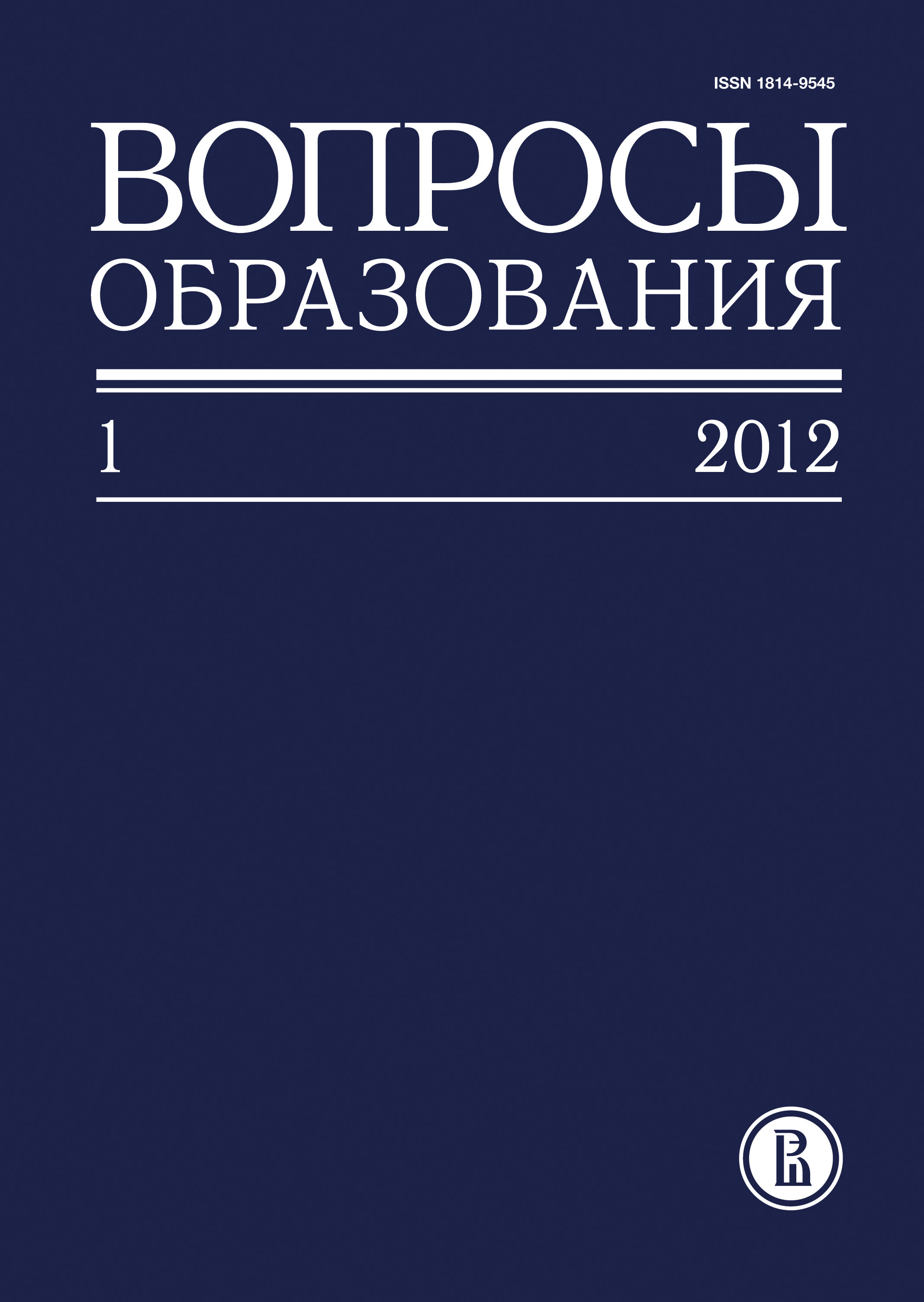Жизненные ценности в учебниках для старшей школы
Аннотация
Окольская Лидия Александровна — кандидат социологических наук, старший научный сотрудник сектора исследований личности Института социологии РАН, победитель конкурса аналитических работ в области образования на премию им. А.А. Пинского (1-е место, 2011 г.). Эл. адрес: okoli@yandex.ru Адрес: Россия, 117218, Москва, ул. Кржижановского, д. 24/35, корп. 5.
Изложены результаты контент-анализа учебников для старшей ступени среднего образования по предметам социально-гуманитарного цикла. На основе типологии ценностей Ш. Шварца, состоящей из двух ценностных осей («сохранение — открытость изменениям» и «самоутверждение — забота о людях и природе»), исследовано ценностное содержание российской учебной программы. Установлена ценностная специализация разных школьных предметов, определены значения ценностных категорий, свойственные каждому из них. Ценностные приоритеты учебных программ сопоставлены с данными массовых опросов о ценностях россиян. Проанализировано соответствие ценностного материала учебников декларативным ценностям школьных предметов, утвержденным образовательными стандартами.
Установлено, что курсы истории и обществознания предъявляют школьникам модели деиндивидуализированного взаимодействия человека и государства. Вопреки задаче воспитания у учащихся ценностей сохранения, изложенных в образовательных стандартах, курс истории, как показал анализ текстов учебников, направлен на ценности самоутверждения, в особенности власти и достижения. Среди ценностей сохранения наиболее интенсивно выражена апелляция к ценностям безопасности, предъявляемым через образ государства-защитника.
Показано, что курс обществознания предлагает школьникам сходную идеальную идентичность, базирующуюся на взаимоотношениях с государством, но идеальный индивид предстает, в отличие от установок курса истории, пассивным получателем благ и услуг: безопасности, порядка и различных свобод.
Выявлено, что источником модернистских установок является курс литературы, сочетающий акцент на новизне и самостоятельности с поддержанием традиций. Доминирует в учебниках литературы ценность благожелательности. Подчеркивается значение иерархии ценностей курса литературы для социализации нового поколения россиян.








